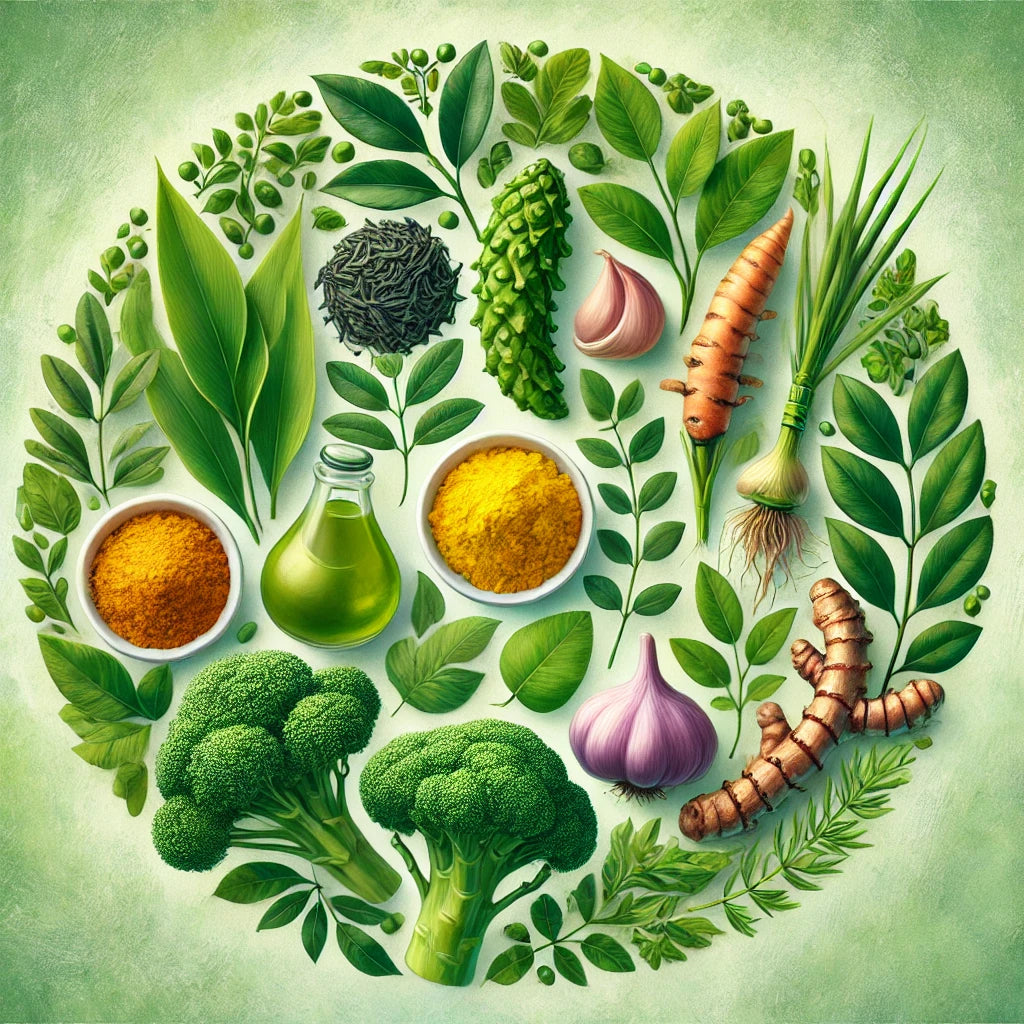In the pursuit of innovative cancer treatments, science is increasingly looking to nature for answers. Plants, with their diverse range of bioactive compounds, have shown incredible potential in combating cancer. While no single plant can guarantee a cure, certain species stand out for their unique ability to inhibit the growth of cancer cells. This article explores the fascinating world of cancer-fighting plants, blending science, tradition, and modern innovation.
How Plants Target Cancer Cells
Plants produce phytochemicals, natural compounds that can protect against diseases. Many of these compounds have been studied for their ability to:
- Induce apoptosis (cell death) in cancer cells.
- Inhibit angiogenesis, preventing tumors from forming blood vessels.
- Reduce inflammation, a precursor to many cancers.
- Boost immune response, enhancing the body’s natural defense against cancer.
Let’s dive into some of the most promising cancer-fighting plants.
1. Turmeric (Curcuma longa)
The Golden Wonder
The active ingredient in turmeric, curcumin, has been widely studied for its anti-cancer properties. Curcumin:
- Induces apoptosis in breast, colon, and prostate cancer cells.
- Blocks signaling pathways that lead to tumor growth.
- Acts as a powerful antioxidant, neutralizing free radicals.
Turmeric’s versatility makes it easy to incorporate into daily life—whether as a spice in meals or as a supplement.
2. Green Tea (Camellia sinensis)
A Sip of Healing
Green tea contains epigallocatechin gallate (EGCG), a catechin with strong anti-cancer properties. EGCG:
- Inhibits the growth of cancer cells.
- Prevents metastasis, particularly in lung and prostate cancers.
- Enhances the efficacy of chemotherapy drugs.
A daily cup of green tea not only provides a refreshing boost but also contributes to long-term health.
3. Garlic (Allium sativum)
The Allium Ally
Garlic has been used medicinally for centuries, and its cancer-fighting potential lies in compounds like allicin. These compounds:
- Disrupt the metabolism of cancer cells, leading to cell death.
- Protect DNA from damage.
- Inhibit the activation of carcinogens.
Regular consumption of raw or lightly cooked garlic can amplify these benefits.
4. Moringa (Moringa oleifera)
The Miracle Tree
Moringa leaves and seeds are packed with nutrients and bioactive compounds. Studies suggest that moringa:
- Contains isothiocyanates, which inhibit the growth of cancer cells.
- Reduces oxidative stress.
- Supports detoxification processes in the body.
Moringa powder can be added to smoothies or taken as a supplement for a nutritional and medicinal boost.
5. Ginseng (Panax ginseng)
The Ancient Adaptogen
Ginseng is revered in traditional medicine for its ability to enhance vitality and fight diseases. Ginsenosides, the active compounds in ginseng:
- Inhibit tumor growth by targeting cancer cell cycles.
- Enhance immune system function.
- Work synergistically with conventional cancer therapies.
Ginseng tea or capsules are popular ways to harness its benefits.
6. Broccoli and Other Cruciferous Vegetables
A Crucial Group
Broccoli, kale, and Brussels sprouts contain sulforaphane, a compound with strong anti-cancer properties. Sulforaphane:
- Detoxifies carcinogens before they can damage cells.
- Induces apoptosis in cancer cells.
- Reduces inflammation and oxidative stress.
Lightly steaming these vegetables maximizes their nutritional and medicinal value.
7. Soursop (Graviola)
A Tropical Treasure
Soursop has gained attention for its potential as a natural cancer remedy. Its active compounds, called acetogenins:
- Target cancer cells while sparing healthy ones.
- Block energy production in cancer cells.
- Inhibit tumor growth in laboratory studies.
Fresh soursop fruit or tea made from its leaves can be incorporated into a wellness routine.
The Science-Backed Potential of Plants
While the plants above offer promise, it’s important to recognize that they should complement—not replace—conventional cancer treatments. Their role lies in enhancing the body’s natural defenses, reducing side effects of treatments, and improving overall health.
Practical Tips for Using Cancer-Fighting Plants
- Start with Your Diet: Incorporate a variety of colorful, plant-based foods daily.
- Choose Whole Foods Over Supplements: Whenever possible, consume plants in their natural form to maximize benefits.
- Consult with Professionals: Always discuss dietary changes with your doctor, especially if undergoing cancer treatment.
- Experiment with Recipes: Make it enjoyable! Try turmeric lattes, green smoothies, or garlic-infused dishes.
Conclusion
Nature offers a treasure trove of plants with cancer-fighting potential. From turmeric’s golden glow to the humble broccoli floret, these plants remind us of the powerful connection between diet and health. While research continues to uncover their full potential, integrating these natural allies into your life can be a proactive step toward wellness and disease prevention. Remember, the journey to health is best traveled with a balance of science, nature, and professional guidance.

